Transcripts
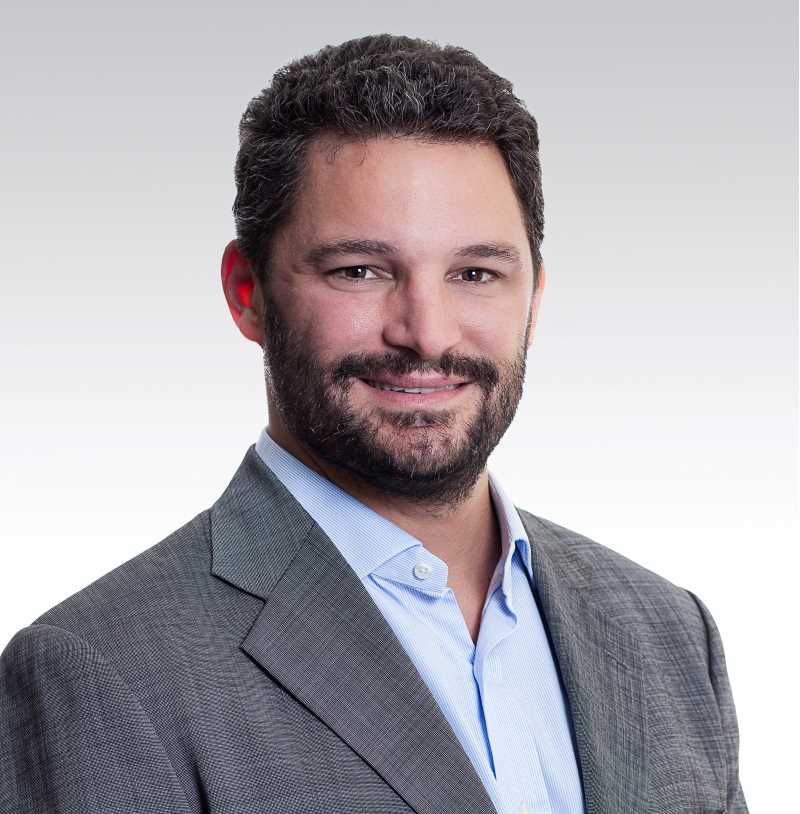
Erik: Joining me now is Gavekal co-founder Louis-Vincent Gave. Louis, it's great to get you back on, I really enjoy our conversations, particularly just because you live outside the US, you have the non-US perspective, which I think balances a lot of the other guests that we have. So, I really want to talk to you about where we are in the overall big macro picture cycle. I lifted my S&P hedges this morning, with a lot of trepidation as to whether I was making the right decision. It seems to me, like it's just really hard to argue with, we have clearly a breakout to new all-time highs on the major stock indices. In a year when the Fed, which we all know is more political than it admits to being, has an incentive to kind of goose the markets into the election. There's headwinds on all fronts, it seems like there's a perfect setup for the markets to just melt higher. And to be hedged with the put spreads that I was holding didn't make sense. When I got your preview of a post you have coming up called, “Party like it's 1999,” when I read that title, I knew what was on your mind without even having to read the first paragraph, I knew exactly what you were thinking. So for anybody, it might not be completely intuitive to what's up with 1999. Why does this feel like that to both of us? And what should we make about it in terms of risk management?
Louis: Well, good luck on lifting your hedges. I hope it works out. Thanks so much for having me. Look, I always get so much out of these conversations. And it's a great pleasure to catch up once again. Look, I think in 1999, for those who lived through it, we had a deeply concentrated market. You had markets where in essence, 30 names, were making up most of the gains in the S&P500. It was all about tech, it was all about communication services. And if you owned value stocks, if you owned energy, if you owned anything but tech, and that wasn't just in the US, by the way, it was also true. You know, you needed to own France Télécom, you needed to own Nokia Ericsson, and people who didn't own those stocks, by the end of 1999 were fired more often than not. And the money went to the guys who did own these names. And that promoted for the concentration. Now, the good news for you, and that given the fact that you lifted your hedges, the market continued to absolutely melt up in the first three months in the first quarter of 2008. And then that market melt up continued to be concentrated. So yeah, the piece I sent you on “Party like it's 1999,” I think, if you look at the past year, we have had a fairly concentrated, a very concentrated not fairly, very concentrated markets, up until November 12 of last year, which is really what, I guess 10 weeks ago, so the S&P equal weighted was actually down for the year. And, of course, treasuries were down for the year. So last year, up until basically early November, if you weren't into Mag Seven, if you own, let's say some bonds, and if you own some equities that weren't Mag Seven, you were actually having a pretty dismal year. Now, what happened, right at the end of October? If you remember, at the end of October, bond yields were reaching 5%. And there were some failed auctions and people were talking about term premium for bonds. And the whole environment looked pretty dicey and regional banks looked like they were going to take out the lows, their lows of Silicon Valley Bank, the Fed basically goosed the BTFP program. Basically, it didn't say, look, I'm going to turn around and buy a bunch of treasuries, but what it did do is tell all the commercial banks, hey, guys, here's a bunch of free money, we're giving you a free arbitrage of 75 basis points between the money you can borrow from us and then turn around and buy US treasuries in doing so. And so it turns out, lo and behold, that banks really, really like making free money. So you know, bank shares, regional bank shares retire and bonds rallied in the equity market, broadened out from the seven names that we all know, into something much broader. And then you get to the start of this year, and I take your point that the Fed does want to goose things up to make sure Trump doesn't get reelected. And by the way, it's not just the Fed. If you look in Europe, I think today in Europe, we have in early June, we have the European Parliamentary elections. I think most governments in Europe are petrified at the rise of the populist right in Germany, and Holland and France and Sweden, you name it, and very afraid that the populist right is going to absolutely crush it at the coming European Parliamentary elections. You also have important elections in India and in India, you have Modi today, that is basically really cranking up all the infrastructure spending, making sure that all the boys have jobs. And so, you have a lot of very, very strong growth in India.
And then finally, you look at China. And China's got a very different dynamic going on. But the one thing you do know about China, is that right now, you're seeing easing of fiscal and easing of monetary policy. So ,you look all around the world, US, Europe, India, China, basically everyone is easing fiscal and easing monetary policy. Except, so to your point, it's like, in an environment where everybody's trying to goose up their economy and goose up their markets, why have hedges, right? And here, this brings us to what's happened in the past few weeks. In the past few weeks, the Fed has actually pulled the plug on the BTFP. Now, the BTFP program was always going to end that sort of free money to the regional banks I just described, that was always going to end in March. But basically, the Fed said, you know what, I'm actually raising the interest rates at which, a couple of weeks ago, at which I lend to the banks, so I'm taking the arbitrage opportunity away. And lo and behold, since then, what have you seen? You've started to see bond yields creep back up, and you've gone right back to a market that is getting narrower and narrower, except that this time, it's no longer Mag Seven, it's now Mag Three. If you look at the names that are actually making new all-time highs amongst the mega cap tech stocks, Meta is making all-time highs and Microsoft is making new all-time highs and obviously Nvidia is making new all-time highs. But Apple isn't, Alphabet isn't, Amazon isn't yet, Amazon may still, and Tesla definitely is not. And maybe we can come back to that in a little bit. So, you have a market, to me, that looks like it's getting narrower and narrower, which is usually not a great sign of health for a market.
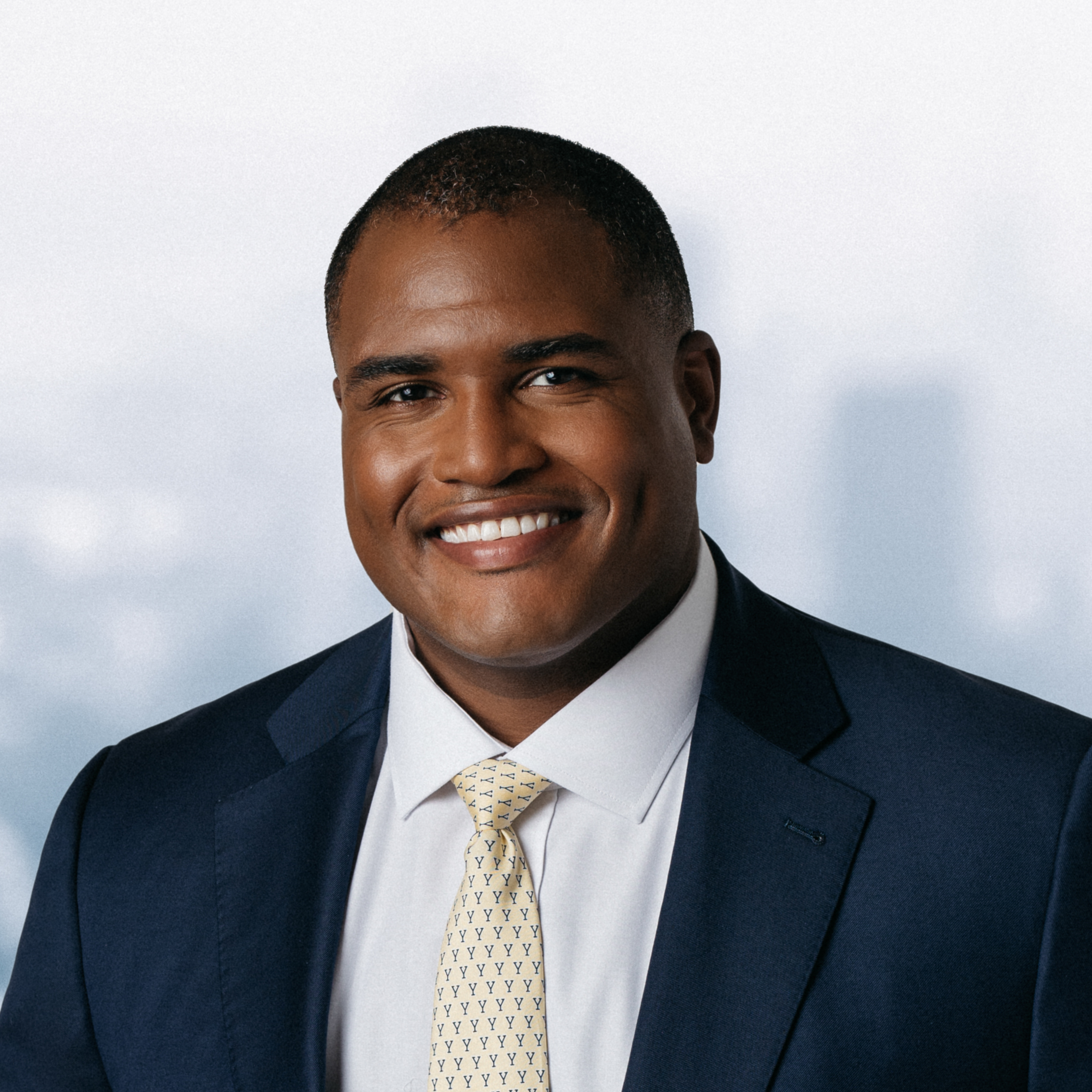
Erik: Joining me now is 42 Macro founder Darius Dale. Darius, as always, has prepared an extensive slide deck to accompany today's interview. Registered users will find the link to the slide deck in your Research Roundup email. If you don't have a Research Roundup email, just go to our homepage macrovoices.com, click the red button above Darius’s photo that says Looking for the Downloads. Darius, it's great to get you back on the show. We've kind of made a tradition of doing January interviews for the last few years, you've had some really good calls at the beginning of the year. I guess we slipped it into the beginning of February this year. But give us the big picture. What should we expect this year? Last we had you on, you were still expecting a recession and maybe a lower low in the bear market. Needless to say, we're looking at new all-time highs. So, how's the new market data line up with your expectations?
Darius: Yeah, Erik. Thanks, again, for having me back on the show. It's always a pleasure. So just to make one quick caveat to your intro there, the last time I was on the show, we were calling for a blow off top in the equity market as a function of a potential recession on the calendar that is sensitive.
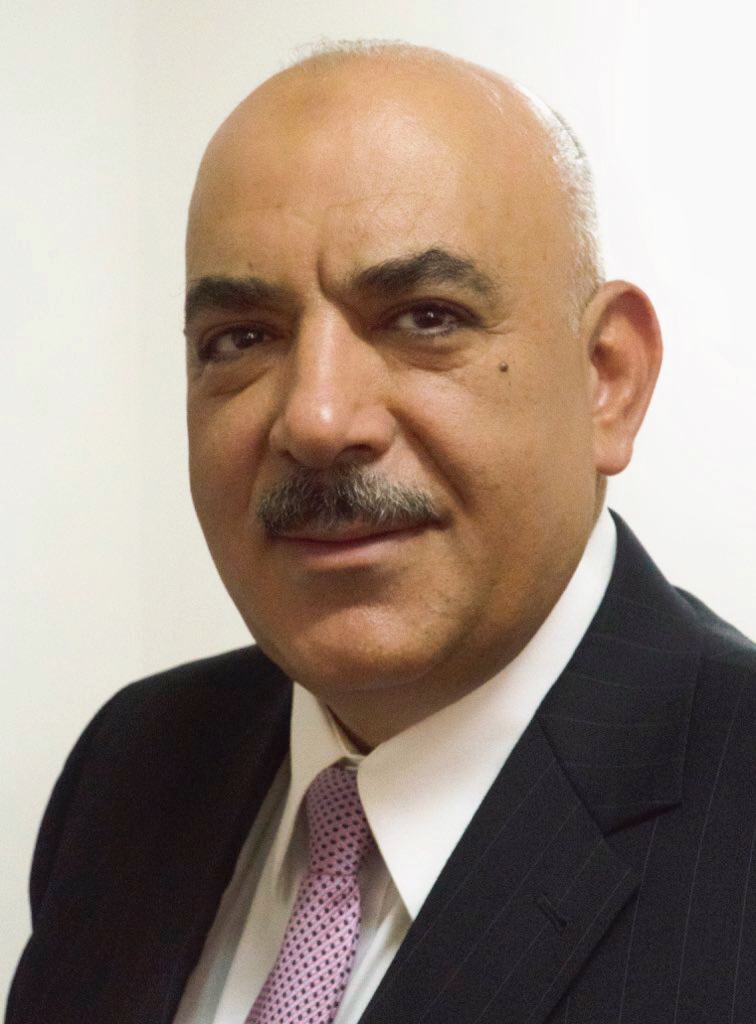
Erik: Joining me now is Dr. Anas Alhajji, a managing partner of Energy Outlook Advisors, former chief economist for Natural Gas Partners, and now recently named the number three most influential social media influencer on the topic of oil and energy markets outstripping, Dan Yergin and a number of other notable people considerably. So congratulations on the new title, sir.
Anas: Thank you. I don't know whether this is true or not. But thank you.
Erik: Well, I don't know how they came up with it. But I was certainly proud for you the day that I saw that, and hey, we discovered you on MacroVoices. So everybody, just remember where you found the good doctor from. Well, it's great to have you back on MacroVoices. I want to dive right in because the world has changed considerably since the last time that we talked. You just did an Excellent Spaces last week, our listeners got that in last week's research roundup email. So if you haven't listened to that, folks, be sure to.
Why don't we start with a quick update on what's going on with the Yemen war and how it has changed the face of the oil market? And then tie that into what you told us last year, is we were coming to the end of 2023. How does the forecast look into 2024, now with everything that's changed in the world?
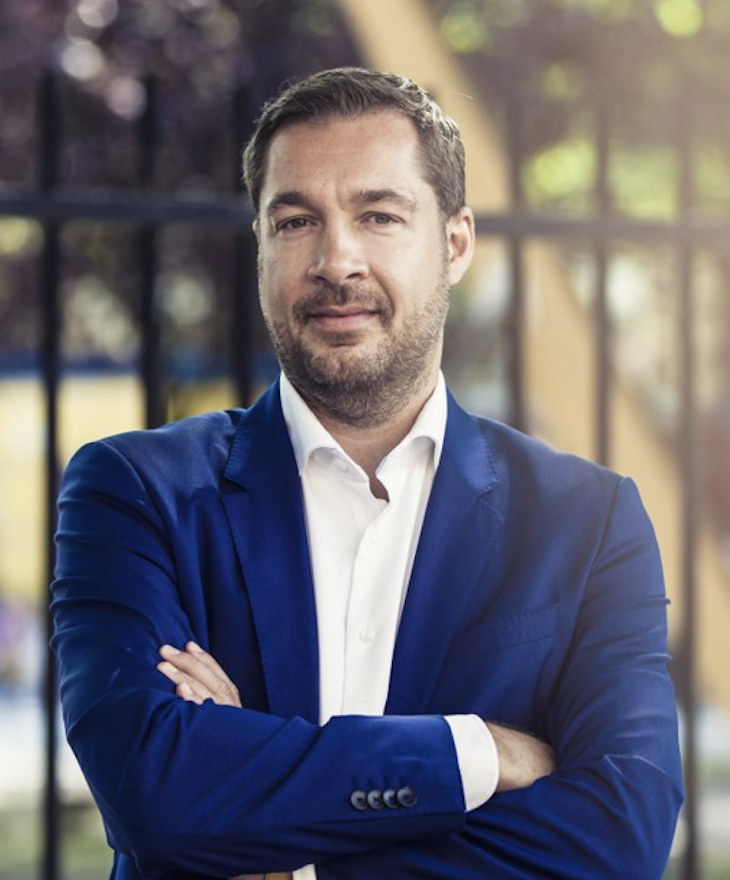
Erik: Joining me now is Jeroen Blokland. Jeroen, last time we had you on the show more than a year ago, you correctly anticipated that there was more inflation to come. Of course, you were right about that. Now, it seems like everybody's convinced inflation has peaked. And, boy, that we've gotten to the point where there's now just widespread expectations that the Fed completely reversing its policy to a campaign of cutting interest rates is just around the corner with rate cut odds in March, just blowing through the roof all the way up to 80% expectations now. So let's start with, first of all, good call, is the inflation really over at this point, or are we just looking at a lull in the storm? And where are we headed with respect to inflation?
Jeroen: I think that the deflationary, disinflationary or however you want to call it, pressures are pretty significant. I also expect that in the end, the US economy will slow down. So it has been much, much stronger than we all have expected. But I think that this year, growth levels will be significantly below what we have seen last year. And so, I think that this inflation story is set to continue. And only, let's say, supply chain bottlenecks, we now have the Middle East, or oil prices or things like that may be able to push that up again, I also expected the US labor market to slow, to be less strong. And that also means less wage growth. So yes, I think that inflation dropping to near or at the Federal Reserve target is pretty okay to expect, maybe not in the first part of this year, but towards the end of the year or early next year. So my idea is that inflation will remain relatively benign from here.
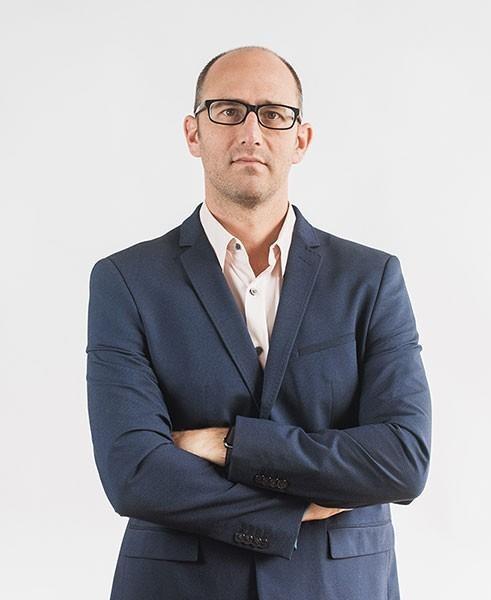
Erik: Joining me now is Uranium Insider founder and newsletter editor Justin Huhn. Justin prepared a slide deck to accompany today's interview, registered users will find the download link in your Research Roundup email. If you don't have a Research Roundup email, just go to our homepage at macrovoices.com, click the red button above Justin's picture that says, “looking for the downloads.” Justin, it's great to get you back on the show. Our listeners have enjoyed two full hours of Mark Nelson and I, or me talking Mark Nelson's ear off about really high level, pie-in-the-sky stuff I know our listeners want to dive into, okay, where's the trading opportunity? How do we make money off of this sucker? So let's talk about this uranium bull market. Needless to say, it's undeniable that it's happening because a lot of the stocks that I have from your focus list in the newsletter, some of them are up 100% since they bottomed in March. So needless to say, the market is on, let's talk about what's driving it, how long it can last, where it's headed, whether we're overdue for a correction and so forth. And I can't think of a better place to start than this beautiful chart you've got on page 1 of the deck.
Justin: Well, thanks for having me back. Erik, it's really good to discuss this this uranium investing thesis again, because I think it's only improved since the couple of times we've spoken over the past 12 months. And it's looking very, very positive going forward, at least for the short and the midterm and potentially for the long term as well, which I know that you personally have a focus on the long term for nuclear, which in unabashed nuclear proponent regardless of the investment case, but the investment case is extremely strong here for uranium. And on that first slide, I'm showing just a really, really simple graph that shows current and projected supply and demand for nuclear. And this is basically just taking a structural snapshot showing the actual expected mined pounds out of the ground on an annual basis compared to the actual burn up rate of the global nuclear reactor fleet. And you can see that we basically remain at a deficit even with expected peak production towards the end of the decade. Now, it's important to add some historical context here, Erik, which is the uranium sector has been short on the production side, let's say lower than annual demand every single year for probably about the past 30 years, there was a period of time where we had an absolute glut of production. And this was going back into the 80s, when there was a full-on nuclear renaissance in the 70s and 80s, many countries were building dozens and dozens of reactors around the world. And we had an absolute explosion of mine supply. And that was, of course, also to feed a few nation's nuclear warhead aspirations. But we had a massive amount of production that far overshot annual reactor demand for close to a decade. And this is primarily in the 80s. And following that, since then, we've had a supply shortfall, the big difference between now and the previous markets, we had bull market back in the 80s and then again in the mid 2000s. The difference now is that there's very little secondary supply to balance that shortfall of production. So if we go back to the previous bull market, let's say, ’04 to ’07, that was a very short, very violent bull market for the commodity. But even during that time, there was a supply deficit from primary production compared to primary demand. But you had an abundant amount of secondary supply coming from the Megatons to Megawatts Program, which was a down blending of nuclear warheads to feed into civil nuclear programs, that was about 20 million pounds a year that went on for 20 years. And then towards that the end of that bull market, you had secondary supply coming from enrichment under feeding, and we can get into the weeds on that. But I'll skip it for now, basically, to say that was 30 plus million pounds of secondary supply, even in the rip roaring bull market of the mid 2000s. Bring us forward to today, Megatons to Megawatts ended in 2013, that's over. There's very little government stockpiles being downloaded and sold into the market currently, under enrichment. underfeeding has drastically dwindled over the past few years. So we now have maybe 15 million pounds of secondary supply. And that's a good year currently right now. So it's a structurally short market. And regardless of where the price is, at which currently right now sitting at $94 a pound uranium, we have a situation where pretty much any mine in the world can be making money here yet we're going to remain out of supply shortfall for the foreseeable future. And there's many many years to go before we have some big new mines come online and that's kind of where we're at currently.
MACRO VOICES is presented for informational and entertainment purposes only. The information presented in MACRO VOICES should NOT be construed as investment advice. Always consult a licensed investment professional before making important investment decisions. The opinions expressed on MACRO VOICES are those of the participants. MACRO VOICES, its producers, and hosts Erik Townsend and Patrick Ceresna shall NOT be liable for losses resulting from investment decisions based on information or viewpoints presented on MACRO VOICES.
